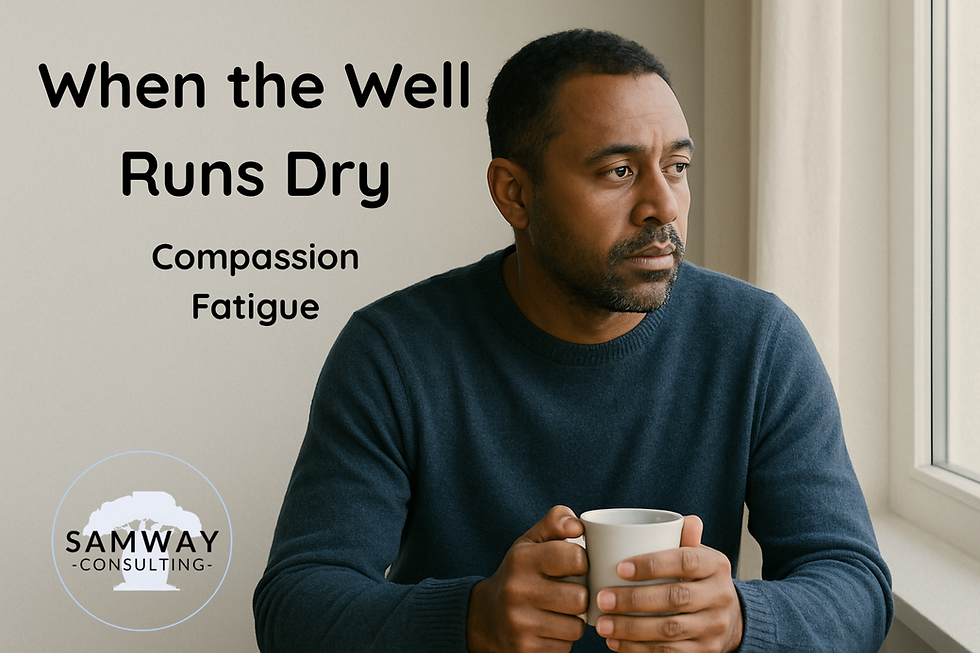Brother, Who's Got Your Six? (The Importance of A Good Support Network)
- Wayne George

- Nov 7, 2021
- 3 min read

In the military, “Got your six” means “I’ve got your back.” The saying apparently originated with World War I fighter pilots referencing a pilot’s rear as the six o’clock position.
While it’s important in the military to know that when in the heat of battle, somebody in your circle has ‘got your six’, I dare say it’s as imperative in the day-to-day stuff of life that we, as men, know that there’s someone who has our six when the road gets tough.
Having a sound support network is key to maintaining our mental health and wellbeing. Relationships and connections are basic and core needs, superseded only by physical and safety needs in order of importance.
Your support network; your team, are the people you can turn to for encouragement, support and personal growth. Support networks can take many forms, but for most people it is family, friends and colleagues that make up your network and offer support during the good and bad times.
The value of a good support network
As men, we don’t always find it easy to reach out and admit that we are not OK. The old adage – ‘cowboys don’t cry’, has been echoed from generation to generation. Thankfully this is changing and more and more blokes are realising that it is not a sign of weakness to ask for help when the going gets tough. Opening up to someone who cares can make us feel much better. Often we assume that people know what’s happening in our lives, but until we reach out it’s difficult for them to identify what we’re going through, or how much we need them.
Many mental health challenges like depression, anxiety and stress can make us feel isolated, like we’re invisible and that people don’t care.
- Reaching out will often show that the opposite is true.
- Opening up to someone and sharing our thoughts and feelings can also help to strengthen our relationship with them.
- Sharing our thoughts also helps our supports to pick up on the signals in future and offer more timely support.
The secondary benefit of one taking the plunge and opening up is that it can help educate people about what mental health challenges look like and help them understand that it is more common than we think, reducing the stigma. Who knows, your simple act of sharing your thoughts may even help others do the same in future!
Building your network
It is useful to have a mix of different people in our network, who can bring different life perspectives, giving us a more complete picture of the situation. Having several ‘go-to’ people also ensures our supports do not become worn out.
So, how do you build your network? A good place to start is by recognising the supports that you already have and the strengths they may bring to various situations. Then you can begin to identify where the gaps might lie and look for new contacts.
Some obvious (and perhaps not so obvious) sources of support could include:
Family members
Friends
Work colleagues
Neighbours, casual acquaintances, and friends of friends
Social media, forums and groups
Local community
Remember that support networks work both ways – make sure you do your part and help others when they are in need. Keep in touch with your network on a regular basis and show genuine interest in their lives. Putting in a little time and effort will pay off in the long run – you never know when you may need to reach out.
So, Brother, who's got your six?
If you need someone to talk to, why not reach out to a professional counselling service like Samway Counselling Services – www.samwaycounselling.com.au
Or if you need after hours crisis support, contact:
MensLine - 1300 78 99 78
Lifeline – 13 11 14






Comments